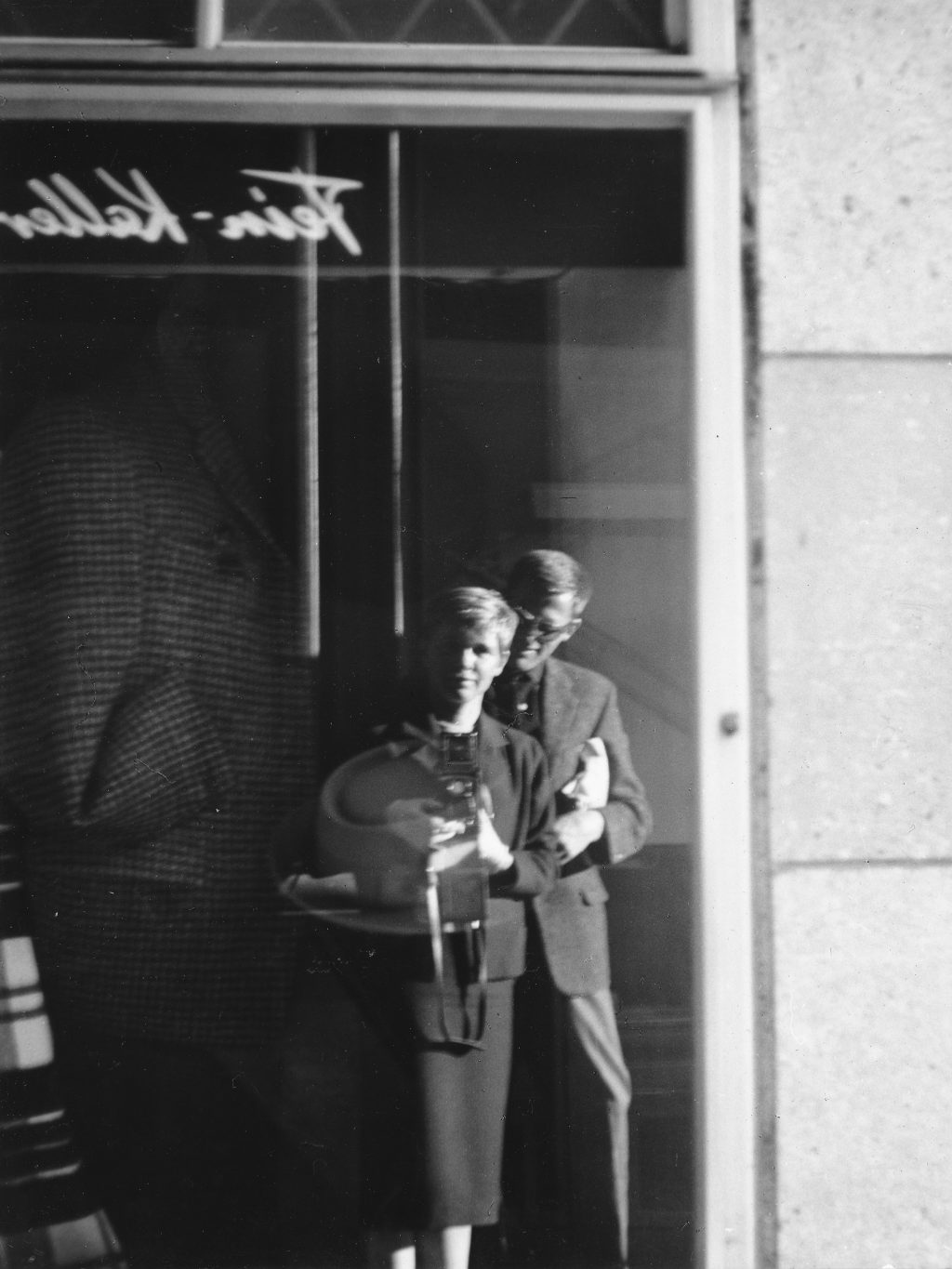
Ingeborg and Dieter Rams on their return journey from Zermatt with a stop in Zurich, reflected shop window, approx. late 1960s.
Photo: Ingeborg Rams © Rams Foundation
“The 931 handbag developed as a kind of ‘project on the side.’ I was in contact with a few Offenbach-based leather goods companies for the production of cases for devices made by Braun, in particular the high-quality razors. Back then in the 1960s, Offenbach am Main was the city with the most-important leatherworking companies in Germany – Goldpfeil, for example, being one of them. The quality of the leatherworking in Offenbach was very high, which is why I came up with the idea of designing a practical yet beautiful handbag for my wife and having it made. The design was a very personal matter and wasn’t produced with the public in mind – it was, you might say, a private labor of love. The 931 was my first and last handbag design. I had no intention of establishing myself as a fashion designer.
I designed this bag in the same way I designed everything else, so largely based on right angles, but perhaps a little more emotionally, more personally. Designing a handbag is undoubtedly different to designing a Braun stereo system, but I applied the same principles. It had to be functional, visually durable, and very aesthetic. Less, but better. The precise craftsmanship in the handbag production was what interested me most of all. I’ve always valued good craftsmanship very highly.
The idea of having TSATSAS make the bag almost sixty years later did not come from me but goes back to our mutual friend Britte Siepenkothen, who introduced us to one another and thus got the collaboration underway.
As a couple, the Tsatsas, like me, place great emphasis on good, long-lasting design. That’s why I agreed to a reedition of this very personal concept. I also aim to dedicate it to my wife, Ingeborg, who has been with me for so long. The release of the 931 bag is first and foremost a tribute to and declaration of love for her.
The bag is now being produced by TSATSAS according to my original design from 1963, although it has at the instigation of Britte Siepenkothen been supplemented with a shoulder strap, which wasn’t originally included. That makes it more functional.
It’s been a long time since I was actively involved in the design process, because I think I have designed enough, but I continue to be involved with Vitsœ, the manufacturer of my system furniture, and with the foundation my wife and I set up for good design.”
Dieter Rams, 2022
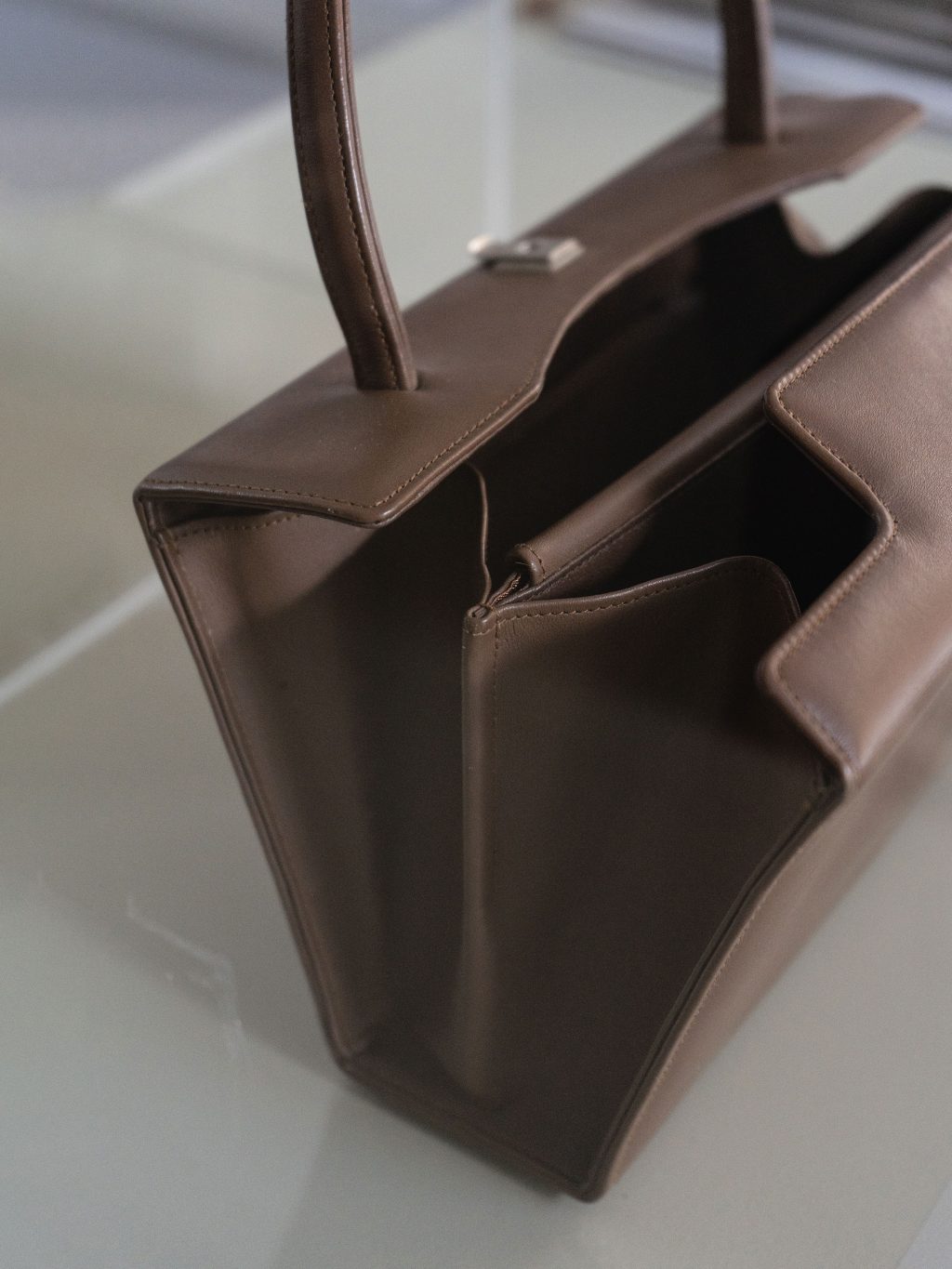
The original 931 bag from 1963
Courtesy of Britte Siepenkothen
Dedicated to the 931 handbag, designed in 1963 by Dieter Rams for his wife Ingeborg, TSATSAS presented a special exhibition at the London store of makers of long-living furniture Vitsœ. The exhibition provided insights into the collaboration with Dieter Rams, the origin story of the 931, and its handcrafted production in TSATSAS’ family-owned leather workshop in Frankfurt/Main. The centerpiece of the presentation was an original 931 bag from 1963, made from smooth cinnamon leather. This bag was generously loaned by Britte Siepenkothen, a close friend of Dieter and Ingeborg Rams and trustee of the Rams Foundation.
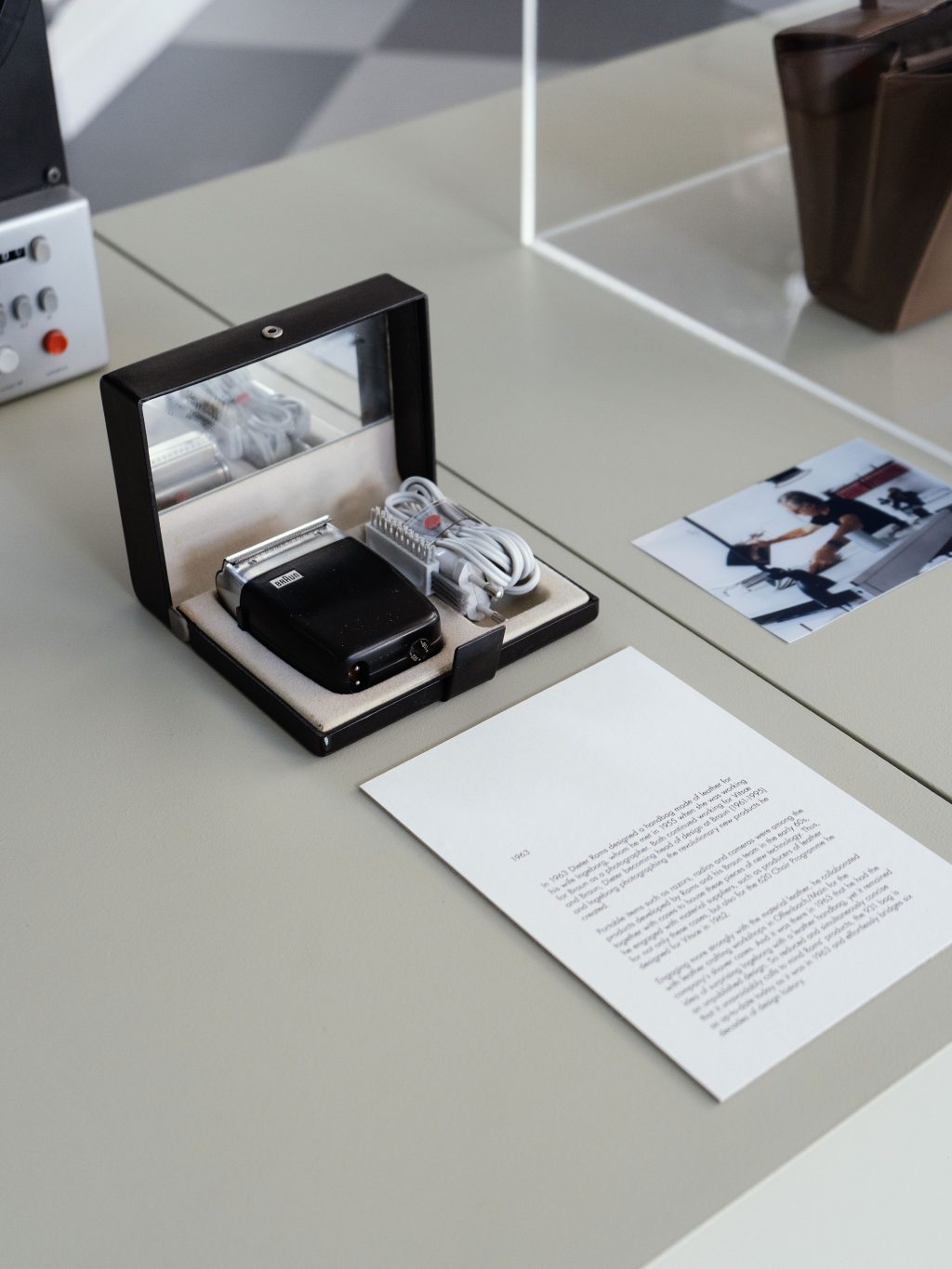
The Sixtant SM 31 with leather case, Braun, 1962
Design: Dieter Rams, Gerd A. Müller, Hans Gugelot
Courtesy of Prof. Dr. Klaus Klemp
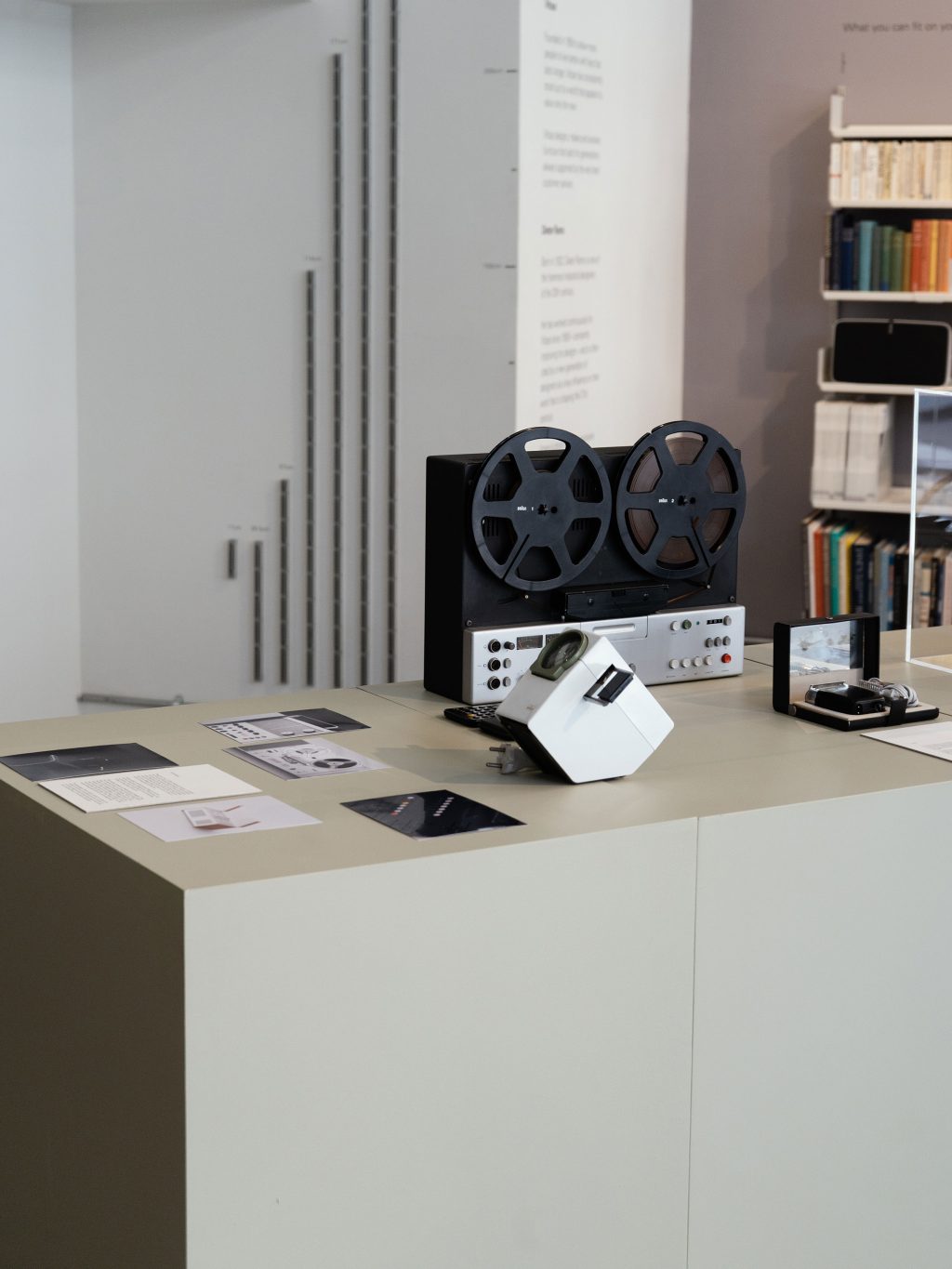
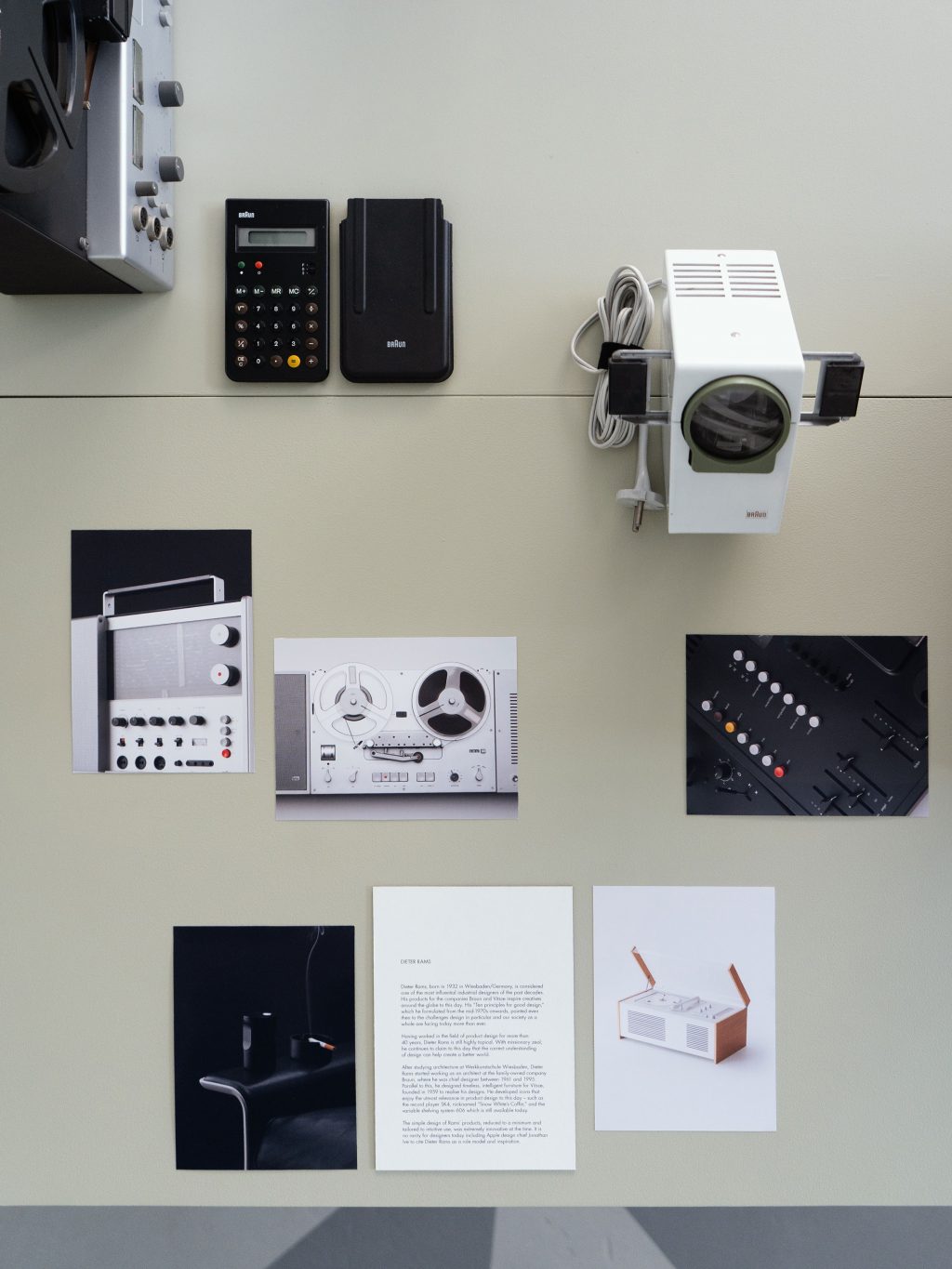
Several objects designed by Dieter Rams for Braun, 1963-1987
Courtesy of Vitsœ
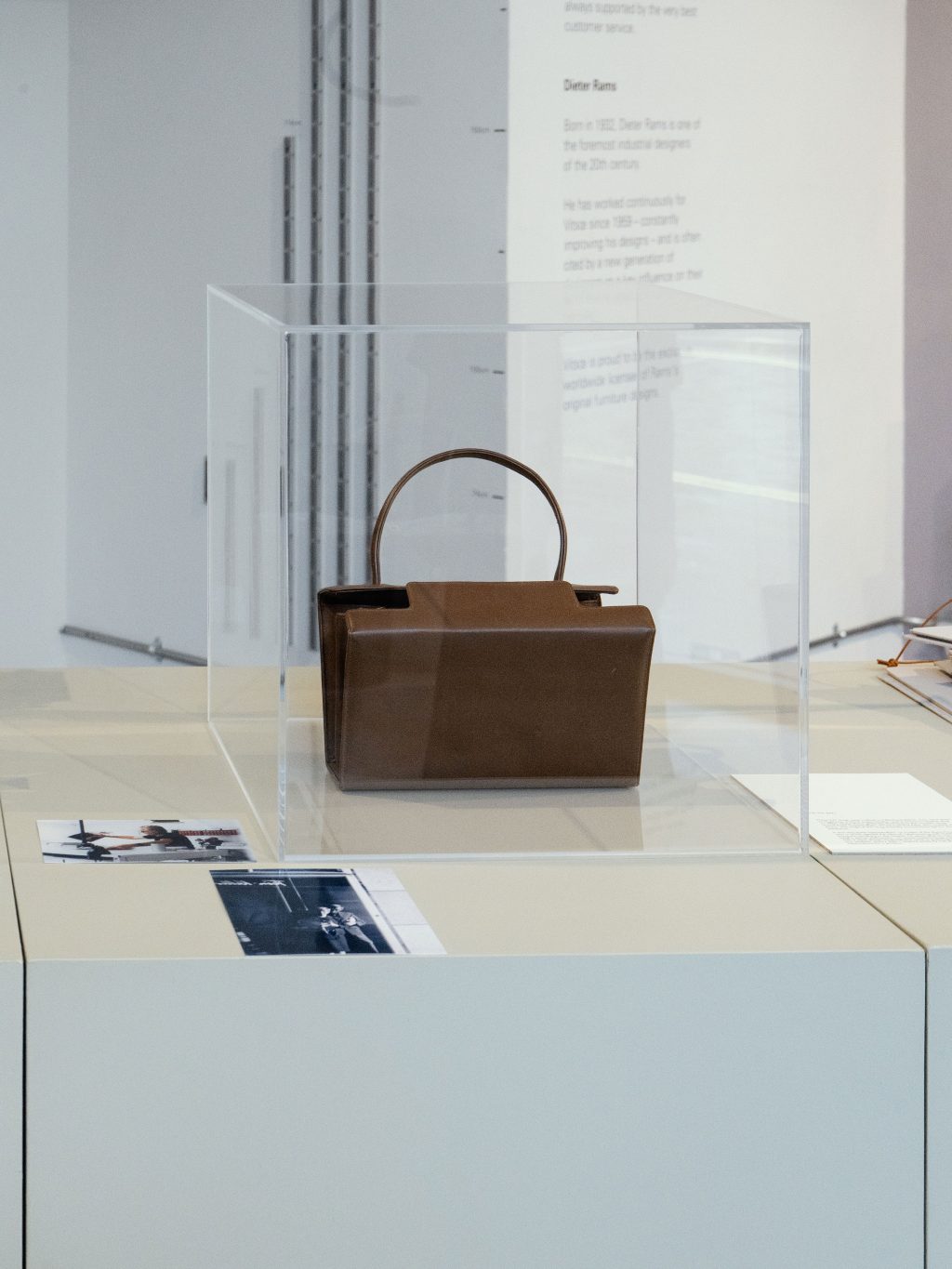
The original 931 bag from 1963
Courtesy of Britte Siepenkothen
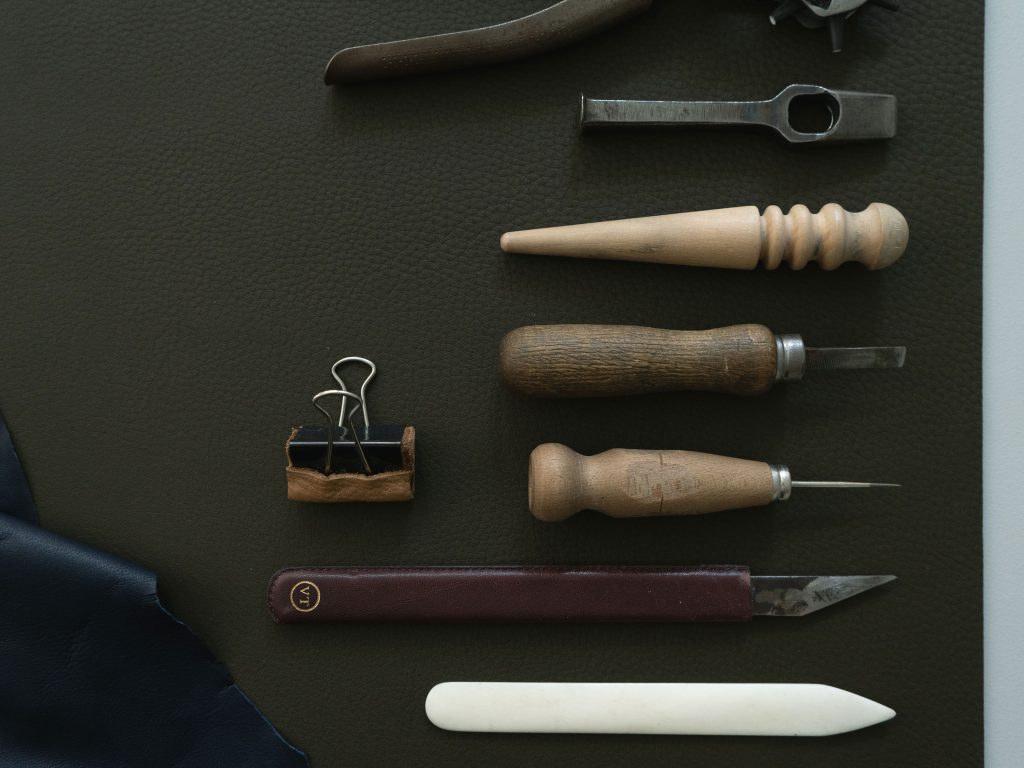
Leatherworking tools from the TSATSAS workshop
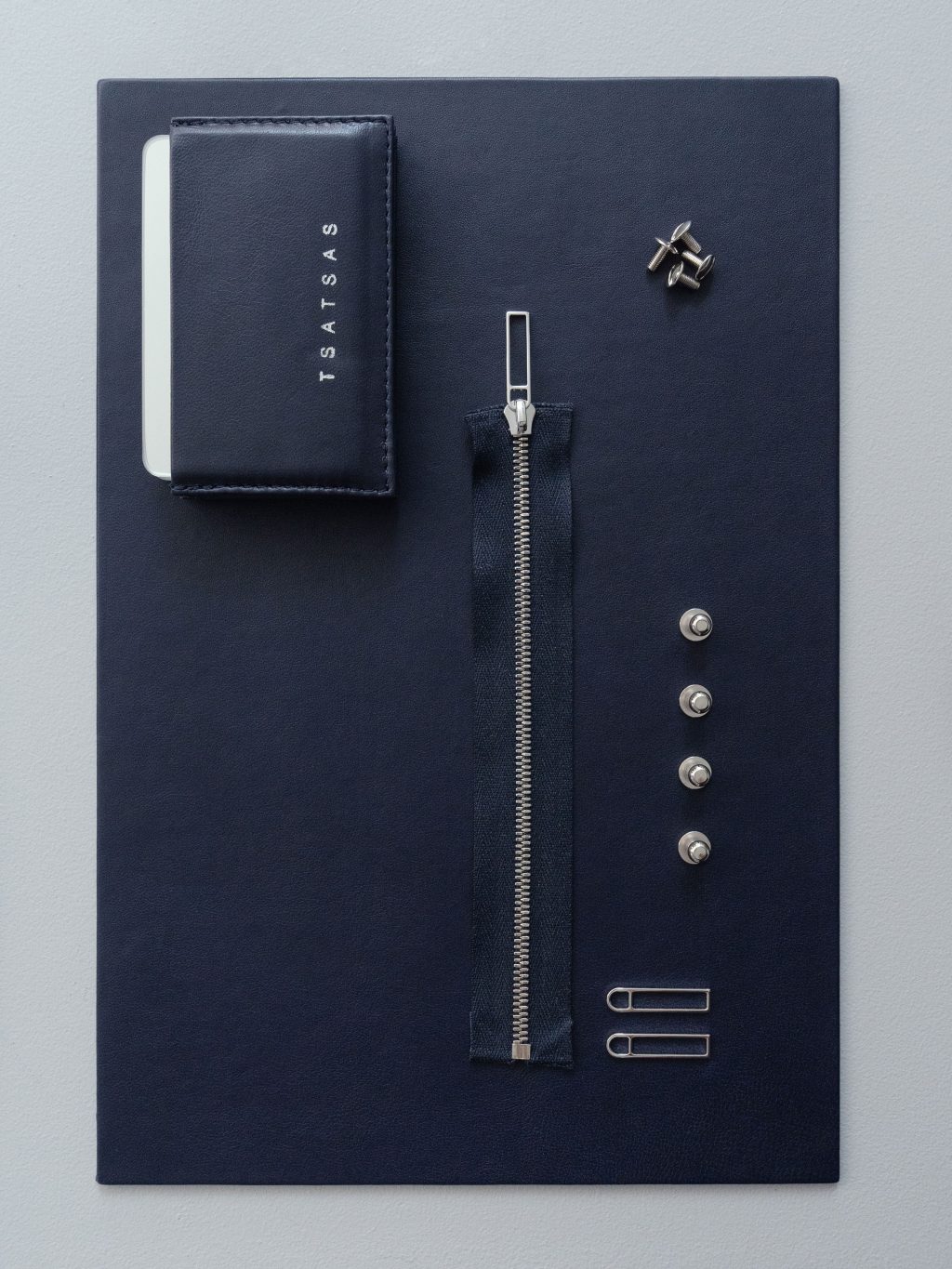
Individual components of the 931 handbag
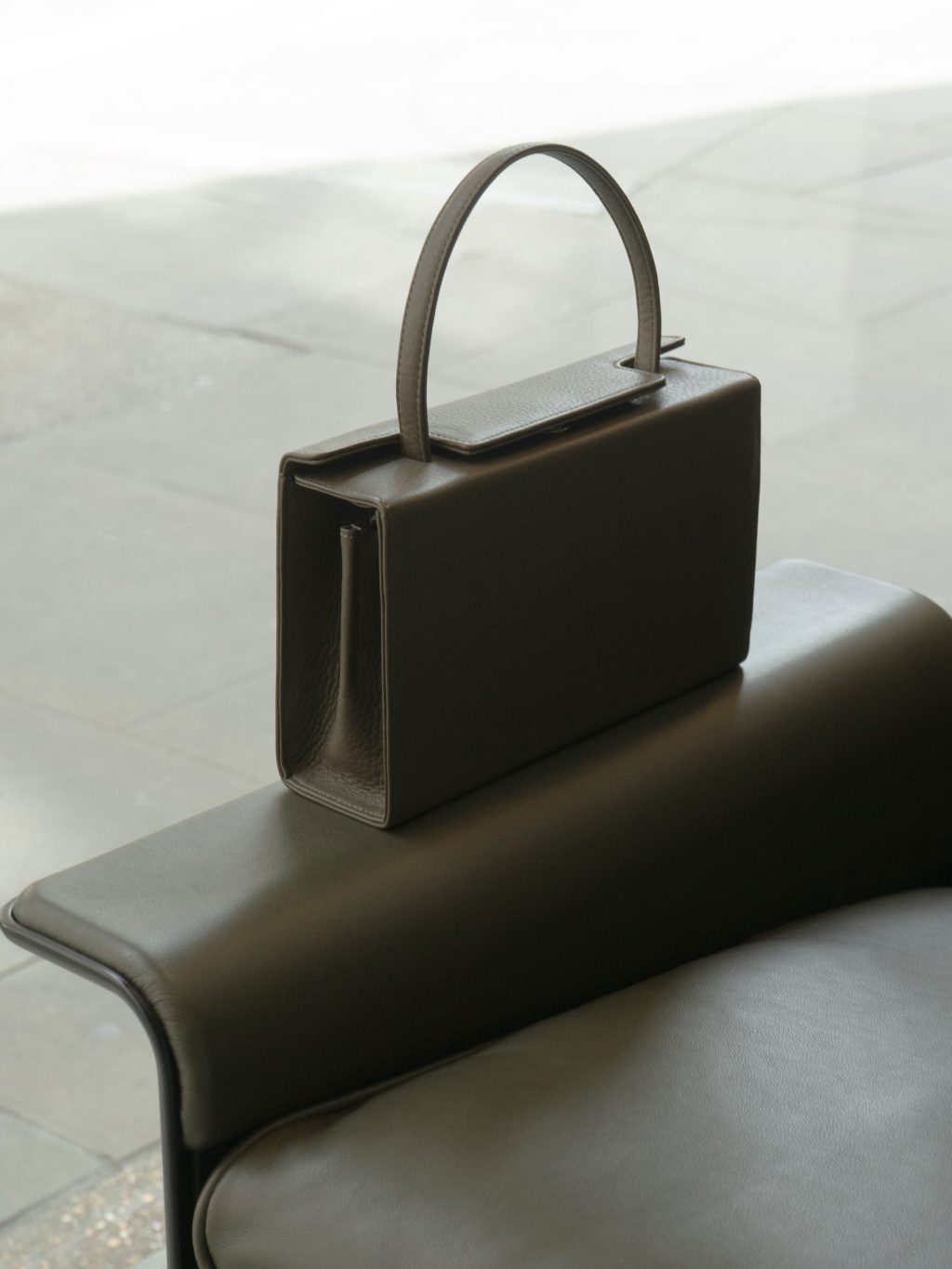
The 931 bag in khaki green calfskin
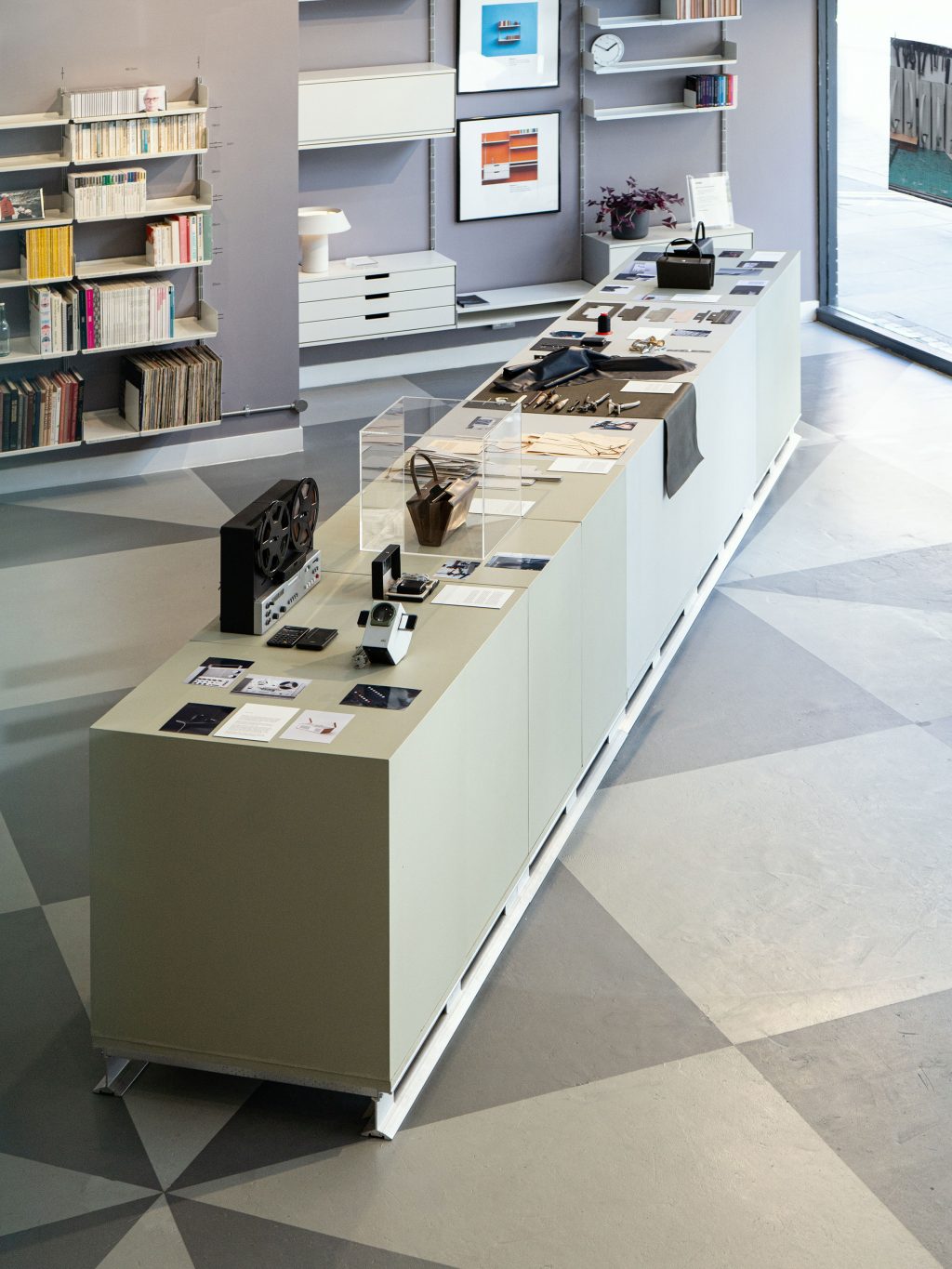
Presentation at the store of Vitsœ in Marylebone, London
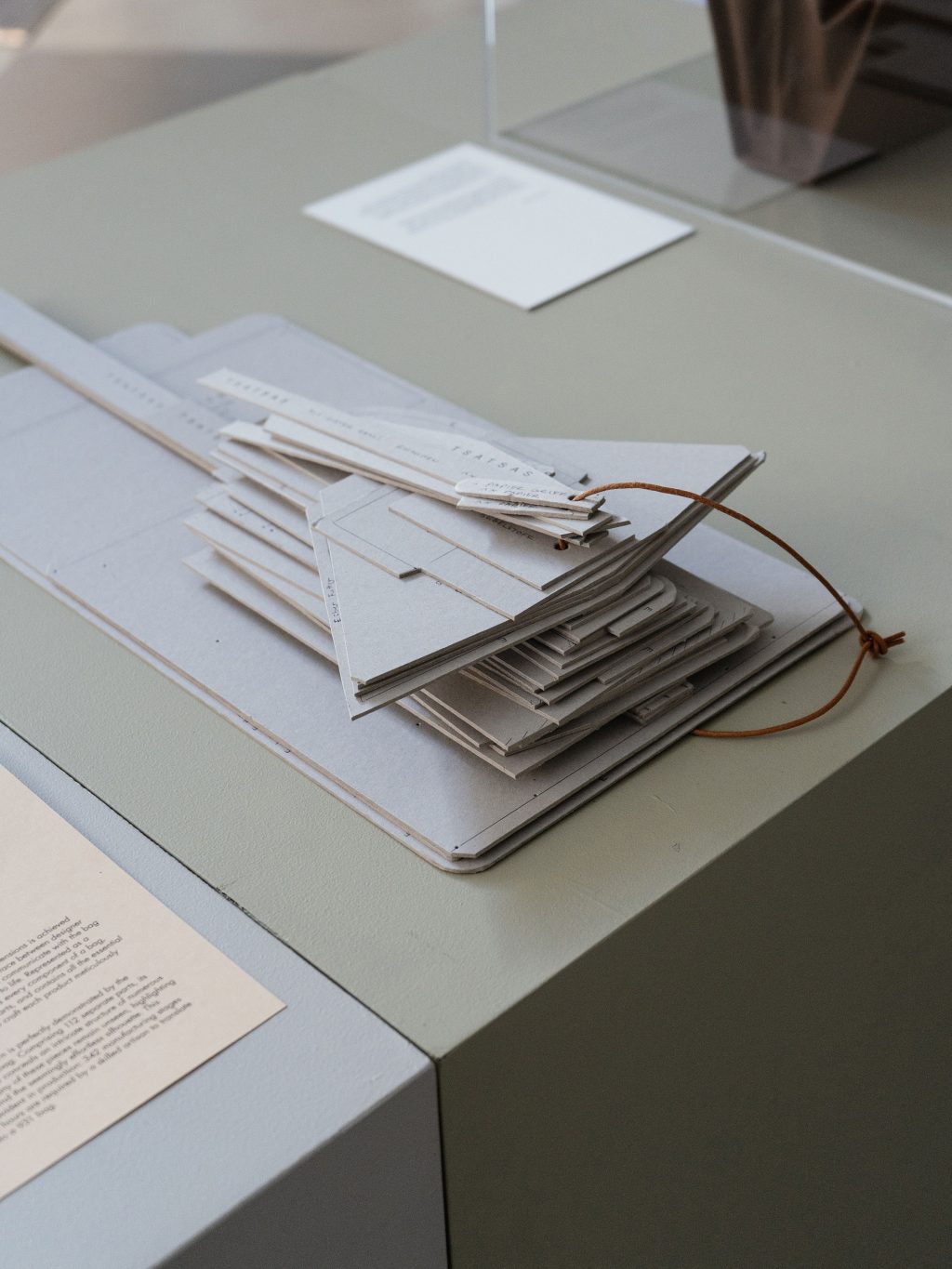
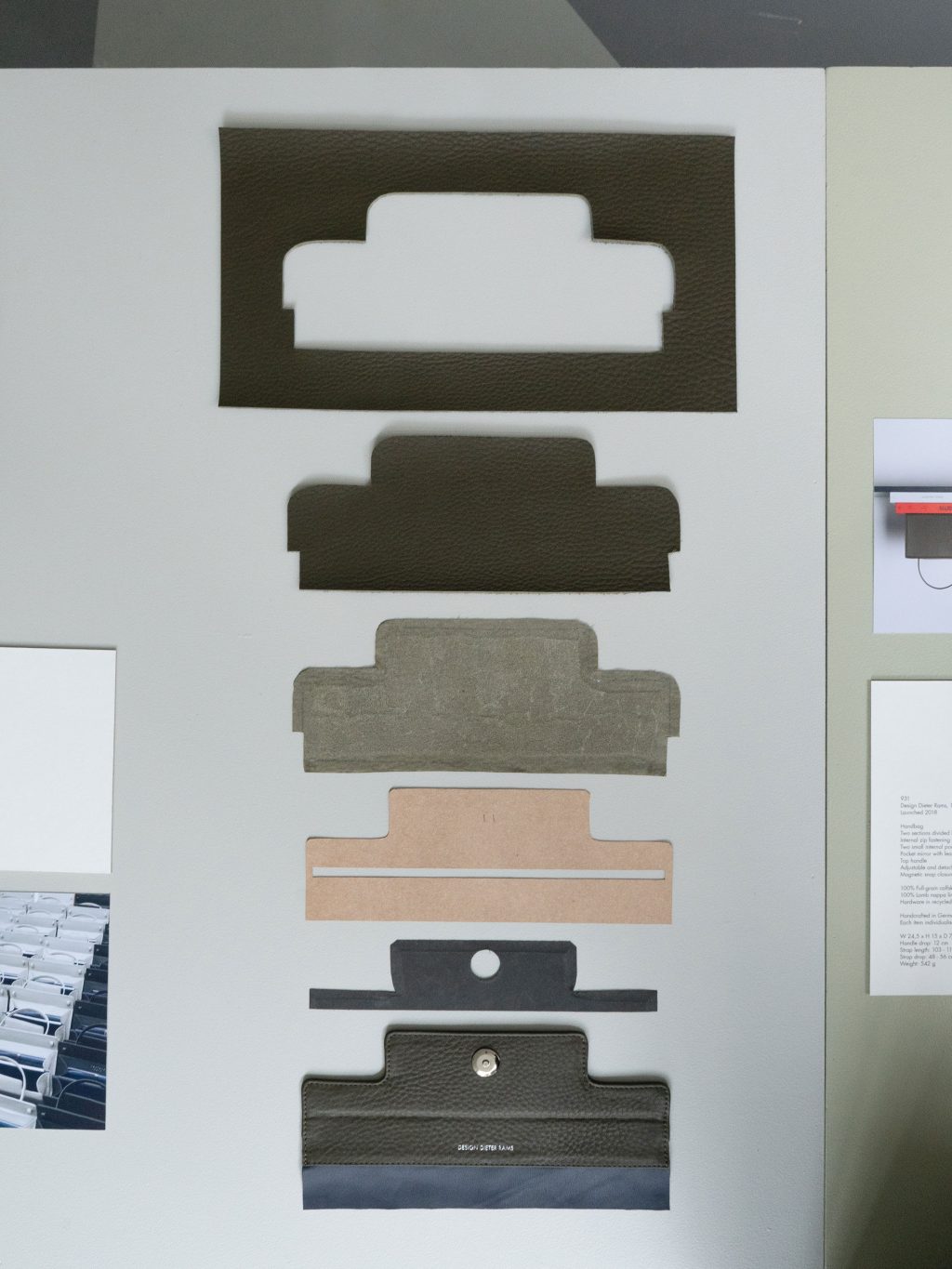
Patterns and components of the 931 bag, comprising 112 individual parts and 342 manufacturing stages
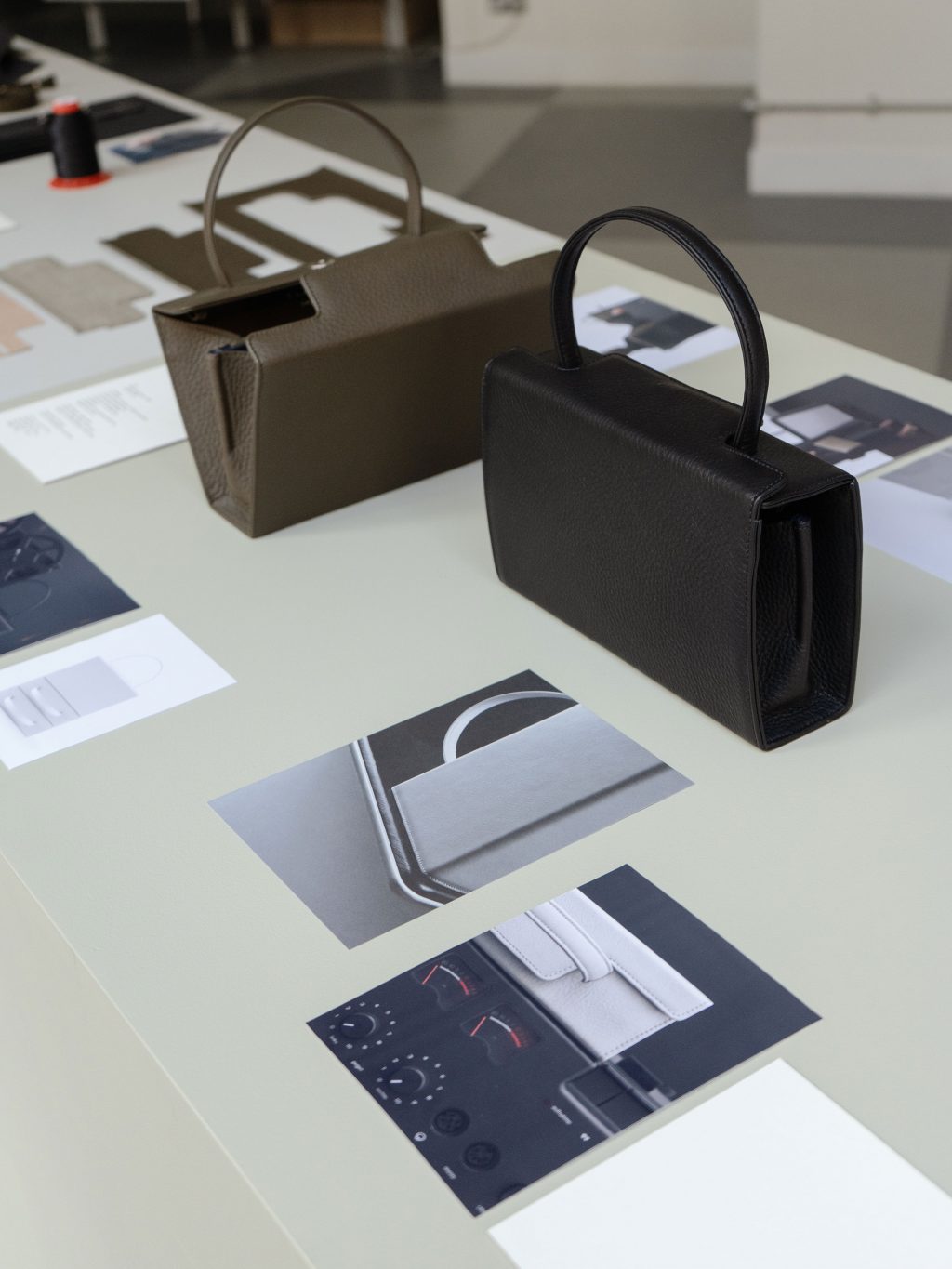
TSATSAS campaigns for the 931 handbag, photographed by Gerhardt Kellermann